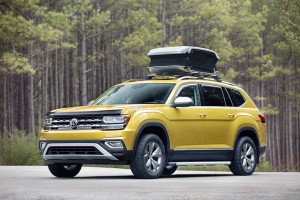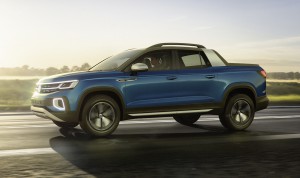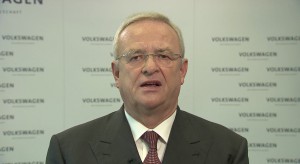Volkswagen’s earnings took a tumble during the first quarter, largely due to a 1 billion euro, or $1.1 billion, set-aside to cover legal costs related to its ongoing diesel emissions scandal.
But at 3.05 billion euros, or $3.41 billion, after-tax profits came in close to last year’s 3.30 billion euros figure from the January-March quarter, with profit margins actually rising across the company’s 12 different automotive brands.
It was a “very strong first quarter,” said Chief Financial Officer Frank Witter, and “to an extent better actually better than we expected.”
But the quarter also showed that the German automaker has yet to fully claw its way out of the mess created when it was revealed by the U.S. Environmental Protection Agency in September 2015 that VW had rigged several of its diesel engines to illegally pass American emissions tests.
To date, the company has spent about $30 billion to cover fines and settlements in the U.S. alone. Investigations continue in a number of countries, including Germany, where former CEO Martin Winterkorn last month was charged with fraud. Four other former executives also were indicted. Authorities there now claim the scandal, known in Germany as the “Dieselaffare,” was initially conceived in 2006.
(Click Here for more about VW’s 10-year plan to comeback.)
The automaker has undergone a number of critical changes since the crisis began to unfold. For one thing, it has now committed over $50 billion to the development of electric vehicles. It has also made a major push into the crossover-utility market, including the three-row Atlas that has helped it reverse several years of declining sales in the big American market.
Utility vehicles played a significant role in propping up the company’s Q1 earnings, in part because of the higher prices they typically command. Overall, VW saw profit margins on sales jump to 8.1% from just 7.2% a year ago. That exceeded its target range of 6.5 to 7.5 percent.
The addition of new and updated CUVs, like Atlas and the latest version of the older Tiguan, have helped VW combat competitors like General Motors, Ford and Volkswagen in key markets including the U.S. and China. Meanwhile, the utility vehicles have now grown to account for more than 23% of the German maker’s total unit sales. But it is expecting to see that share grow to 40% by 2020.
(Tarok Concept hints at VW’s return to U.S. pickup market. Click Here for the story.)
There were a few blemishes on the earnings report, the normally high-profit/high-margin Audi and Porsche brands reporting declines. Sports carmaker Porsche’s earnings were off 12% at 829 million euros, or $926.1 million. Audi, meanwhile, slipped by almost 15% to 1.1 billion euros, or $1.2 billion. Nonetheless, the two brands still contributed about 40% of the entire automotive groups EBIT.
Meanwhile, earnings before interest and taxes, or EBIT, slipped to 3.9 billion euros, or $4.4 billion, down from 4.2 billion a year earlier. They were, nonetheless, in line with the 3.92 billion euros analysts had been forecasting, even with the added legal costs. Discounting all one-time charges, VW’s EBIT actually rose 14 percent, to 4.8 billion euros, or $5.3 billion.
(German prosecutors charge former CEO Winterkorn with fraud. Click Here for the story.)



